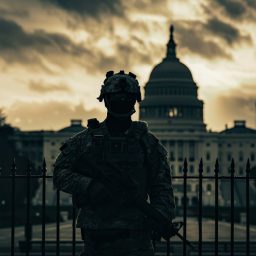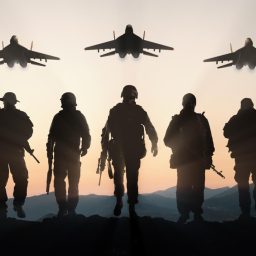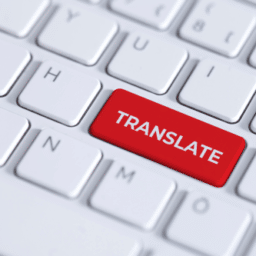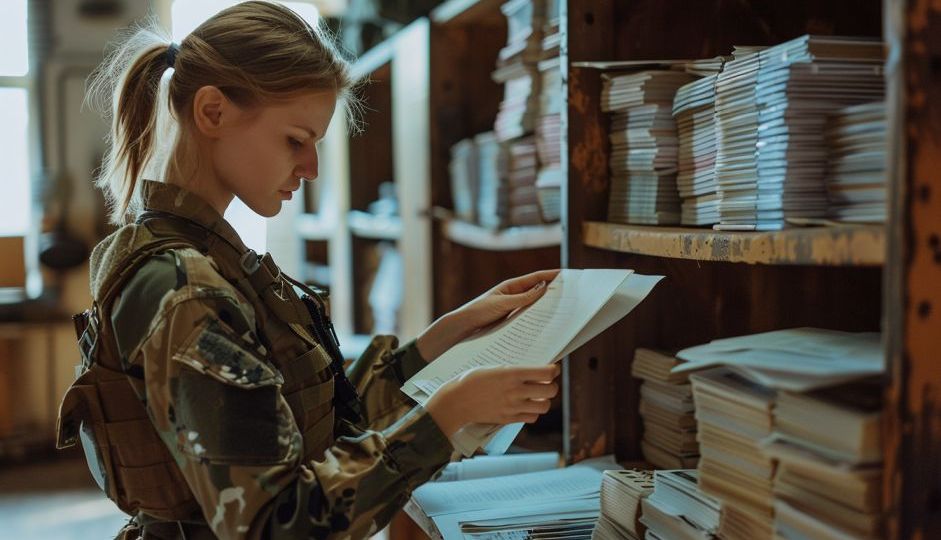
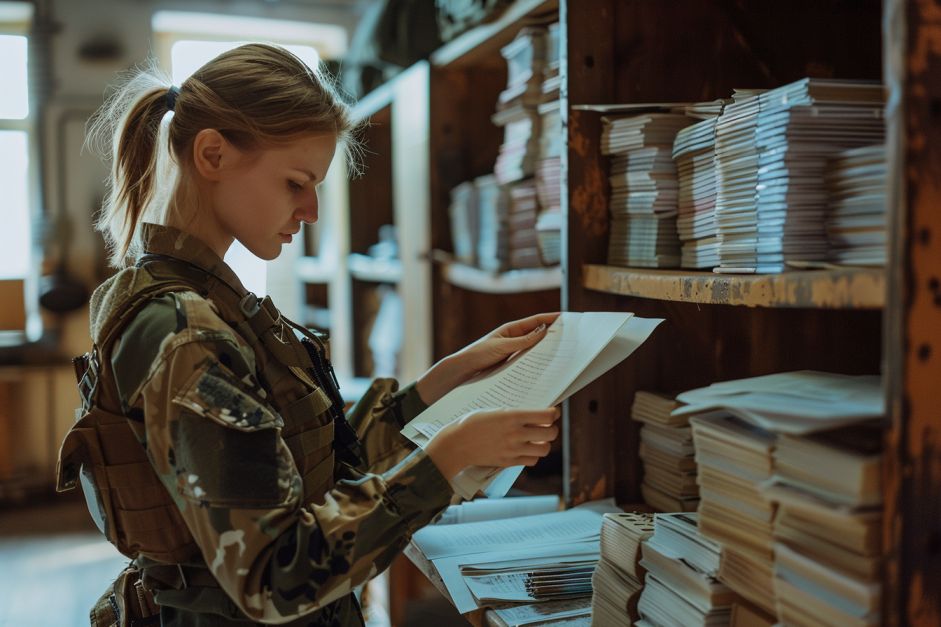
Military translation touches all aspects of communication within the armed forces, between the armies of different countries, and among military enthusiasts.
For the military, both oral and written translations are conducted. They include intelligence reports, operational instructions, and international agreements. Those services require a perfect command of foreign languages and a thorough understanding of military terminology.
Contents
Military translation security
Why are military translations so important for national security? Rapid information exchange during conflicts and international peacekeeping operations has an impact on the success of a mission. A mistranslation of commands leads to misunderstandings and, in extreme cases, tragedies when an inadequate translation of a single word results in unintended strikes on civilian targets.
Military translations employ advanced encryption protocols that meet army policies. Translators working for the military adhere to strict security procedures to eliminate the risk of espionage or sabotage. Professionals are often trained in maintaining state secrets and must sign confidentiality agreements.
When oral translations occur live, during international negotiations or in wartime actions, additional security measures are implemented. Radio communication is secured by jamming signals for unauthorised receivers, and translations are conducted in a controlled environment to prevent eavesdropping.
Translations of documents and communications must be accurate and promptly available. This poses a significant logistical challenge. Reliance on machine translation systems is not feasible. Human intervention is necessary to properly assess the operational context.
The quality of military translations directly affects the effectiveness of operations. This is why such great responsibility rests on the shoulders of military translators. The lives of individuals depend on their skills and speed of action.
Military translations: Past and present
Translations have played a role in military operations since ancient times. Both then and now, understanding the language of the enemy has determined victory or defeat. Foreign language experts helped Caesar in negotiations with the Gallic tribes, which was decisive for Roman expansion in Europe.
During the Middle Ages, translators were essential during the Crusades, as armies from different parts of Europe needed to communicate with local allies and adversaries in the Middle East.
In modern history, the role of translators has become even more pronounced. During World War II, translators and cryptologists working at Bletchley Park in Great Britain contributed to the decoding of the German Enigma cypher machine. This breakthrough had a significant impact on the course of the war. Intercepted messages helped the Allies to plan operations effectively and avoid ambushes.
During the Cold War, translators were involved in diplomatic and espionage games. Contemporary international operations, including those in Iraq and Afghanistan, also involved translators. They translated orders and instructions and assisted in daily interactions with the local population.
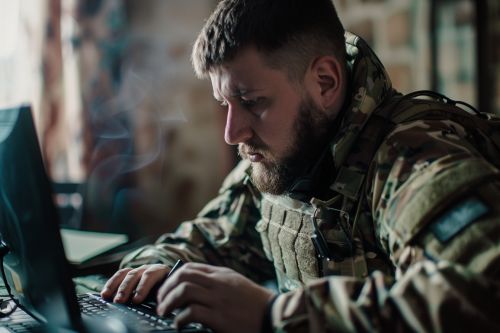

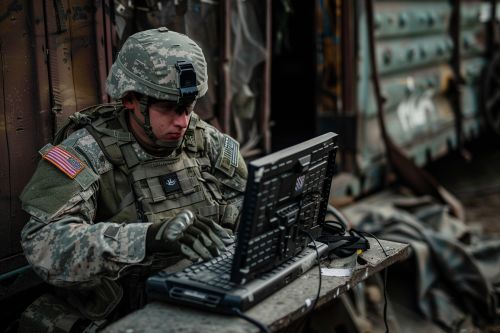
Military translation services
Technical translations for the military include user manuals for equipment, service documents, and technical specifications for the latest weapon systems. These translations require a profound understanding of both the source and target languages and specialised technical knowledge.
A translator must thoroughly understand the terminology related to aviation mechanics when translating instructions for the operation of combat helicopters. This ensures that pilots and technicians can perform their duties correctly. Understanding how radar or navigation systems work helps accurately translate texts on these topics.
Localising software used in weapon systems involves adapting the user interface, menus, and error messages to be understandable to operators regardless of their native language.
Technical documents often contain sensitive information that must not be disclosed outside specified circles. Therefore, military translators work within strict information security frameworks, which include both physical security measures and digital data protection.
Military documents require confidentiality. Examples of technical texts that military translators encounter include:
- military equipment user manuals,
- service documents for vehicles and equipment,
- technical specifications for weapon systems,
- operational manuals for radar and navigation systems,
- electrical and hydraulic installation schematics for armoured vehicles,
- security protocols for communication systems,
- instructions for assembling and disassembling military equipment,
- documentation for software used in weapon control systems,
- evacuation and rescue procedures.
Military technical translation services
Translations for the military significantly differ from standard translations due to the specialised terminology used. Military language is full of abbreviations, acronyms, and jargon that are incomprehensible to those not affiliated with the armed forces.
Examples of specific military terms include:
ROE (Rules of Engagement): These rules dictate when and to what extent soldiers can engage the enemy using force.
IFF (Identification Friend or Foe): A system used to prevent accidental firing on one’s own units.
EOD (Explosive Ordnance Disposal): Refers to the neutralisation of unexploded ordnance and other explosive devices.
AWACS (Airborne Warning and Control System): An early warning and control system from the air used for defensive operations and coordination of actions.
NBC (Nuclear, Biological, Chemical): An acronym referring to nuclear, biological, and chemical weapons.
Mastering the full range of military terminology requires years of work and continuous education from translators.

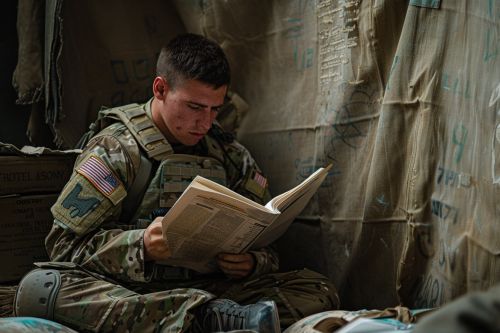

Military interpreters
Interpreting is required when direct and swift communication is essential. During peace negotiations, military leaders discuss terms of cooperation or conflict resolution, and the interpreter must accurately convey every word as each can influence the outcome of the discussions.
Briefings and debriefings are other scenarios where interpreting is indispensable. During briefings, operational plans are presented to soldiers; clarity of communication in this case is critical for the success of the mission. Debriefings, on the other hand, are used to analyse the execution of a mission and discuss what went well and what did not. Accurate translation here helps to draw the right conclusions.
Military translation services
We offer comprehensive translation services in over 100 foreign languages, tailored to the needs of modern armed forces, defence agencies, and private companies.
Our team consists of qualified translators with expert knowledge in military terminology. We collaborate with former military personnel to ensure the accuracy of the content.
We understand the importance of information security, which is why we use state-of-the-art encryption protocols and strict control procedures to protect every document from unauthorised access.
We treat each assignment as unique and tailor our approach to meet the specific needs and requirements of our clients. Regardless of the project scale, we provide full support at every stage of the translation process. Thanks to our proven processes, we deliver translations promptly without compromising on quality.
Do not risk it. Choose the reliability and professionalism offered by Skrivanek translation services. Contact us today to find out more!
Images generated by AI.








